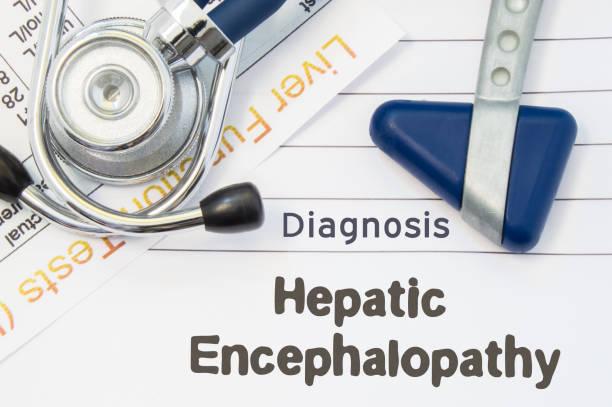What is hepatic encephalopathy?
Jun 29, 2022
Hepatic encephalopathy is an often-temporary neurological (nervous system) disorder due to chronic, severe liver disease. A diseased liver struggles to filter toxins (substances created from the breakdown of food, alcohol, medications and even muscle) from the bloodstream. These toxins build up in the body and travel to the brain. Toxicity affects brain function and causes cognitive impairment.
People with hepatic encephalopathy may seem confused or have difficulty processing their thoughts. Treatments can remove the toxins and reverse the problem. As liver disease progresses, the condition may worsen and become less treatable. Hepatic encephalopathy is also known as portosystemic encephalopathy (PSE).
Who might get hepatic encephalopathy?
Up to 50% of people with cirrhosis of the liver eventually develop symptoms of hepatic encephalopathy.
Cirrhosis is a buildup of scar tissue in the liver. This scar tissue blocks blood flow and affects the liver’s ability to filter toxins, hormones and nutrients.
What are the types of hepatic encephalopathy?
There are three types of hepatic encephalopathy:
- Type A is brought on by acute liver failure (without underlying chronic liver disease).
- Type B occurs in some people who have a shunt that connects two veins inside the liver without underlying liver disease.
- Type C results from chronic liver disease and scarring (cirrhosis).

What causes hepatic encephalopathy?
When you have liver disease, the liver struggles to filter natural toxins out of the body. Toxins, such as ammonia, accumulate in the blood. Toxins in the bloodstream can travel to the brain and temporarily (or sometimes permanently) affect brain function.
People with chronic liver disease are at risk for hepatic encephalopathy. Something usually triggers the condition, such as:
- Alcohol use.
- Certain drugs that affect the nervous system, such as sleeping pills and antidepressants.
- Constipation (being unable to pass stool, or poop, normally).
- Dehydration or electrolyte imbalance.
- Digestive tract bleeding.
- Infection.
- Kidney disease.
- Liver shunt.
What are the symptoms of hepatic encephalopathy?
People with hepatic encephalopathy experience impaired brain function. Symptoms include:
- Anxiety or irritability.
- Cognitive impairment (confused thinking or judgment).
- Coordination or balance problems.
- Difficulty concentrating or short attention span.
- Flapping hand motion (asterixis).
- Mood or personality changes.
- Muscle twitches (myoclonus).
- Reduced alertness.
- Sleep problems.
- Slurred speech
How is hepatic encephalopathy diagnosed?
There isn’t a standard test to check for hepatic encephalopathy. However, blood tests can identify problems such as infections and bleeding associated with liver disease. Your doctor may order other tests to rule out conditions that cause similar symptoms, such as strokes and brain tumors. These tests include magnetic resonance imaging (MRI), computed tomography (CT) scans and electroencephalogram (EEG).
Generally, your doctor makes a diagnosis based on your:
- Medical history.
- Symptoms.
- Office exam.
How is hepatic encephalopathy managed or treated?
Treatment varies depending on your symptoms and overall health and how severe the condition is. It’s important to take medications for hepatic encephalopathy exactly as prescribed. With treatment, it’s possible to slow, and sometimes stop, the disease from getting worse. Your doctor may recommend one or both of these treatments:
Antibiotics: Bacteria in your body make natural toxins from digested foods.
Laxatives: Lactulose oral solution, a laxative made from lactose sugar, draws toxins into the colon. The laxative stimulates frequent bowel movements that help remove toxins from the body.
What are the complications of hepatic encephalopathy?
Liver disease needs treatment, such as medications and lifestyle changes, including not drinking alcohol. If the underlying cause of liver disease isn’t treated, liver function deteriorates, and toxins continue to build. Some people with advanced hepatic encephalopathy lose consciousness and go into a hepatic coma.
How can I prevent hepatic encephalopathy?
Proper management and treatment of liver disease is key to lowering the chances of developing hepatic encephalopathy. These steps can lower your risk:
- Avoid alcohol, which damages liver cells.
- Avoid medications that affect the nervous system, such as sleeping pills and antidepressants.
- Eat a nutritious diet, exercise and maintain a healthy weight (especially important if you have fatty liver disease).
- Take your prescribed medications to treat liver disease.
- Undergo regular liver function tests.









